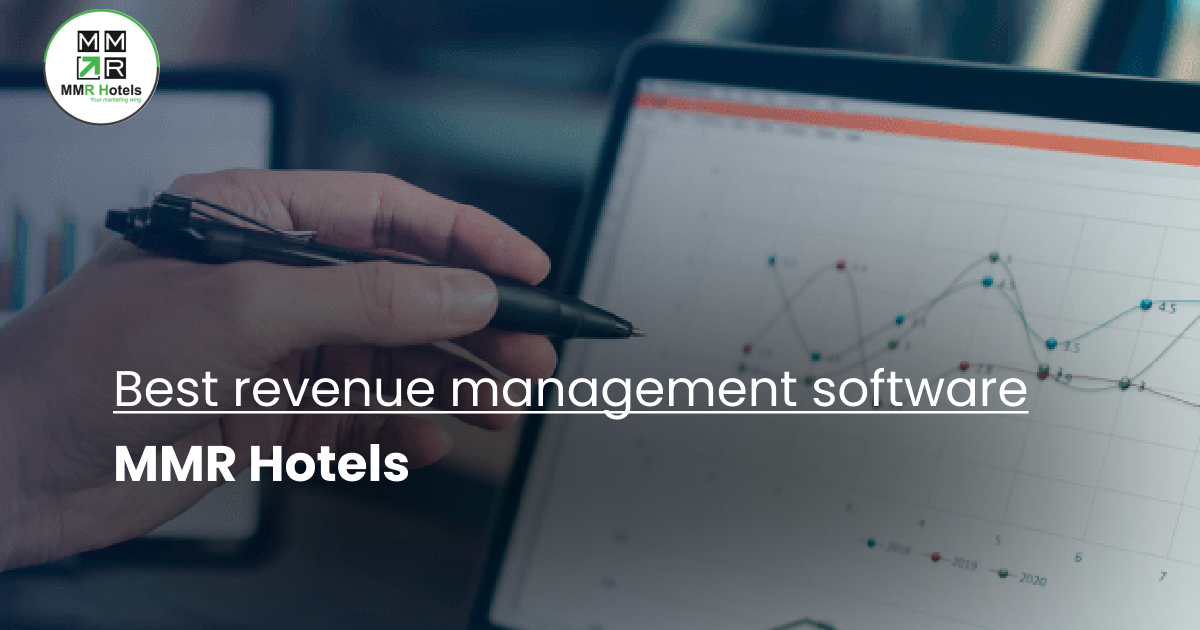
In the dynamic world of hospitality, the role of technology in maximizing revenue cannot be overstated. For MMR Hotels, the “Best Revenue Management Software” is not just a tool but a transformative solution that provides optimal pricing, greater customer satisfaction, and profitability. As competition grows, adopting the best revenue management practices powered by recent technology is more important than ever.
What is Revenue Management Software (RMS)?
Revenue Management Software (RMS) uses advanced algorithms, historical data, and market trends to optimize pricing and inventory distribution. By automating complex calculations, RMS allows hotels to predict demand, manage availability, and maximize revenue efficiently.
Revenue Management System vs. Revenue Management Software
A revenue management system refers to the overarching framework and strategies employed to manage pricing and inventory, while revenue management software is the technological solution that automates these processes. Think of the system as the strategy and the software as the execution tool.
Key Metrics in Revenue Management
Understanding the core metrics is essential to grasp how RMS works:
- ADR (Average Daily Rate): A measure of the average income earned from occupied rooms.
- Formula: ADR = Total Room Revenue / Rooms Sold
- RMS optimizes ADR by analyzing market demand and competitor pricing.
- RevPAR (Revenue Per Available Room): Reflects the revenue earned per available room, combining occupancy and pricing strategies.
- Formula: RevPAR = ADR × Occupancy Rate
- RMS ensures that both occupancy and pricing strategies are balanced to maximize RevPAR.
- GOPPAR (Gross Operating Profit Per Available Room): Measures profitability rather than just revenue, offering a more comprehensive performance metric.
- Formula: GOPPAR = Gross Operating Profit / Total Available Rooms
- Advanced RMS integrates operational costs into pricing strategies to enhance profitability.
Algorithms and Analytics Behind Revenue Management Software
The best RMS employs intricate algorithms, including:
- Dynamic Pricing Algorithms: Adjust room rates in real-time based on demand, seasonality, and market competition.
- Predictive Analytics: Use historical data and trends to forecast future demand.
- Machine Learning Models: Continuously refine predictions and strategies as new data is processed.
- Competitor Rate Scraping: Monitor competitors’ pricing and inventory in real-time to maintain competitive positioning.
- Demand Segmentation: Analyze customer segments to identify high-value guests and tailor pricing strategies accordingly.
Advantages of the Best Revenue Management Software
Increased Revenue
The most effective pricing strategies lead to improved ADR, RevPAR, and ultimately higher revenues.
Time Efficiency
Automation reduces manual tasks, allowing staff to focus on guest experience and other critical operations.
Data-Driven Decisions
Access to real-time data means informed decision-making that aligns with market dynamics.
Competitive Edge
Staying ahead of competitors with dynamic pricing and real-time market insights gives you long-term profitability.
Relevance of RMS in Modern Hospitality
Today’s guests demand personalized experiences and value for money. RMS certifies hotels to cater to these demands by:
- Anticipating guest behavior.
- Offering personalized pricing.
- Managing inventory across multiple distribution channels seamlessly.
MMR Hotels’ Commitment to Revenue Management Excellence
MMR Hotels’ Best Revenue Management Software sets a benchmark for innovation and reliability in the hospitality industry. Here’s what makes it stand out:
Key Technologies Used by MMR Hotels
- Cloud-Based Solutions: Provide accessibility, scalability, and cost-effectiveness.
- Integrated Data Analytics Tools: Provide insights into booking trends, guest behavior, and market dynamics.
- Artificial Intelligence (AI): Drives predictive analytics and dynamic pricing decisions.
- Multi-Channel Distribution: Automates inventory management across OTAs, direct bookings, and GDS.
- Secure Data Handling: Implements robust cybersecurity measures to protect sensitive guest and business data.
Ensuring Data Accuracy and Security
MMR Hotels determines data integrity by:
- Regularly updating software to align with industry standards.
- Utilizing encrypted servers and secure APIs for data transfers.
- Conducting periodic audits to identify and address vulnerabilities.
Staff Training and Support
MMR Hotels made effective use of its RMS by:
- Comprehensive Training Programs: Interactive workshops and e-learning modules for staff.
- 24/7 Support: Dedicated helplines and on-demand technical assistance.
- User-Friendly Interfaces: Simplifies navigation and reduces the learning curve.
Overcoming Challenges in RMS Implementation
Despite its benefits, implementing RMS can be challenging. Common issues include:
- Resistance to Change: Staff may hesitate to adapt to new systems. MMR Hotels addresses this with robust training.
- Initial Costs: Investment in RMS can be high, but long-term benefits outweigh initial expenditures.
- Data Integration: Combining data from multiple sources can be complex. MMR Hotels ensures seamless integration with existing systems.
Why Choose MMR Hotels’ Revenue Management Software?
MMR Hotels offers a blend of innovation, reliability, and user-centric design. With advanced analytics, secure data handling, and continuous support, it is no wonder that their RMS is recognized as the best in the industry.
Conclusion
In today’s competitive hospitality landscape, the “Best Revenue Management Software” is required. For MMR Hotels, it is more than a tool; it is a strategic partner in driving growth, improving guest satisfaction, and providing long-term success. Embrace the future of hospitality with MMR Hotels’ newest RMS and redefine your revenue potential.





Leave a Reply